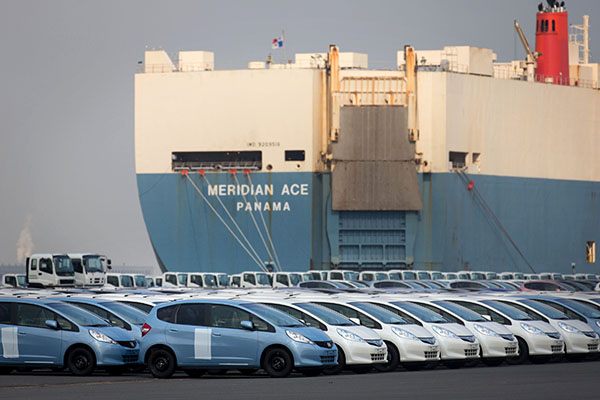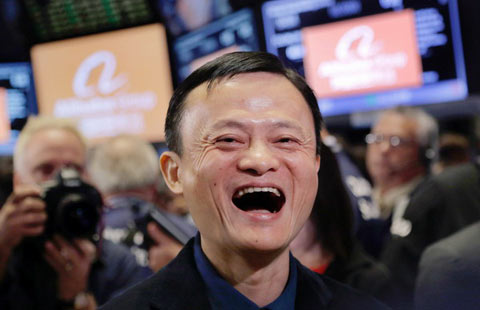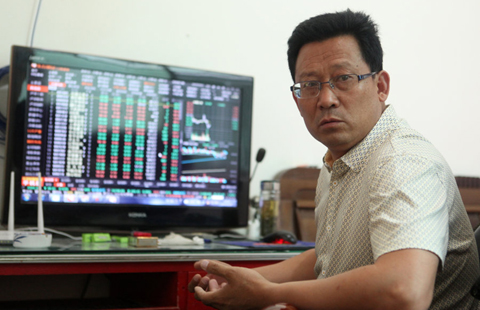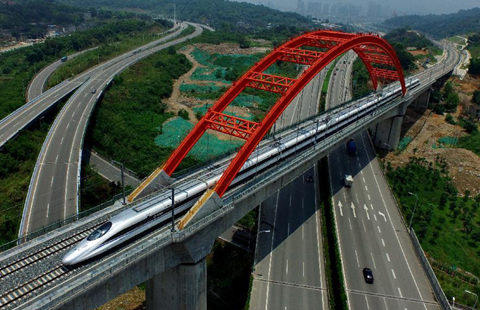Finance talks 'signal thaw with Japan'
By Zheng Yangpeng (China Daily) Updated: 2015-06-06 14:15
 |
|
Vehicles from Honda Motor Co await shipment in Yokohama city, Kanagawa prefecture, Japan. Japanese Deputy Prime Minister and Finance Minister Taro Aso said on June 5 that he and his Chinese counterpart will discuss macroeconomic policy, including fiscal policy, and Asian infrastructure during their meeting in Beijing on June 6. [Noriyuki Aida / Bloomberg] |
Ministerial discussions to cover operations of new infrastructure bank and other areas of cooperation
The finance ministers of China and Japan will meet in Beijing on Saturday to discuss a range of economic issues, the first such dialogue in more than three years.
Japanese Deputy Prime Minister and Finance Minister Taro Aso said on Friday the two sides will discuss macroeconomic policy, including fiscal policy, and Asian infrastructure during the meeting.
The regular meeting mechanism was launched in March 2006, and the previous meeting was in April 2012 in Tokyo. Territorial disputes in the East China Sea flared up that autumn and bilateral relations sank to a historic low. The dialogue mechanism was suspended.
Ties have been improving since Prime Minister Shinzo Abe met with President Xi Jinping in November. This weekend's meeting is seen by some as a sign of warming relations between Asia's two largest economies.
Aso will meet Vice-Premier Zhang Gaoli to discuss economic affairs, Japanese media outlet Nikkei reported on Friday. Zhang, who is in charge of practical affairs related to the economy, is the seventh-ranked member of the Politburo Standing Committee and first-ranked vice-premier.
Discussions could cover the Asian Infrastructure Investment Bank and Abe 's planned address to commemorate the 70th anniversary of the end of World War II, Nikkei said.
Aso also will meet Finance Minister Lou Jiwei. He is expected to brief Lou on a plan unveiled by Abe in May to invest $110 billion over five years to upgrade Asian infrastructure.
Japan hopes the meeting will spur bilateral financial cooperation, including the purchase by Japan of Chinese government bonds, Nikkei said.
The discussions regarding the AIIB follow a move by Japanese lawmakers in the ruling Liberal Democratic Party this week, in which they urged caution on joining the multilateral lender. Aso himself has repeatedly raised concerns about the AIIB's governance.
While 56 nations signed up to the new $100-billion lender that is expected to be established at the end of this year, Japan and the United States are the only two large economies that have not.
China has repeatedly said the AIIB is open to all countries.
However, while suggesting that Japan's entry could improve bilateral ties with China, the LDP's panel on the AIIB in its recommendation to Abe expressed concerns over the governance of the lender. It also raised the possibility that China will be able to exert strong influence over the areas of investment.
The panel said it does not favor joining the bank, but it recommended keeping the option open, so the government can use its position as a diplomatic card in talks with China.
- Finance talks 'signal thaw with Japan'
- Industry group examines Peru's potential for Chinese tourists
- Banks told to step up teller-fraud procedures
- Carrefour buys Hami melons from Xinjiang
- Robust demand to spur aircraft leasing
- Market regulator fights talent flight into private sector
- Disenchanted Chinese tech companies plot escape from New York
- Plan for emerging industries on cards

















